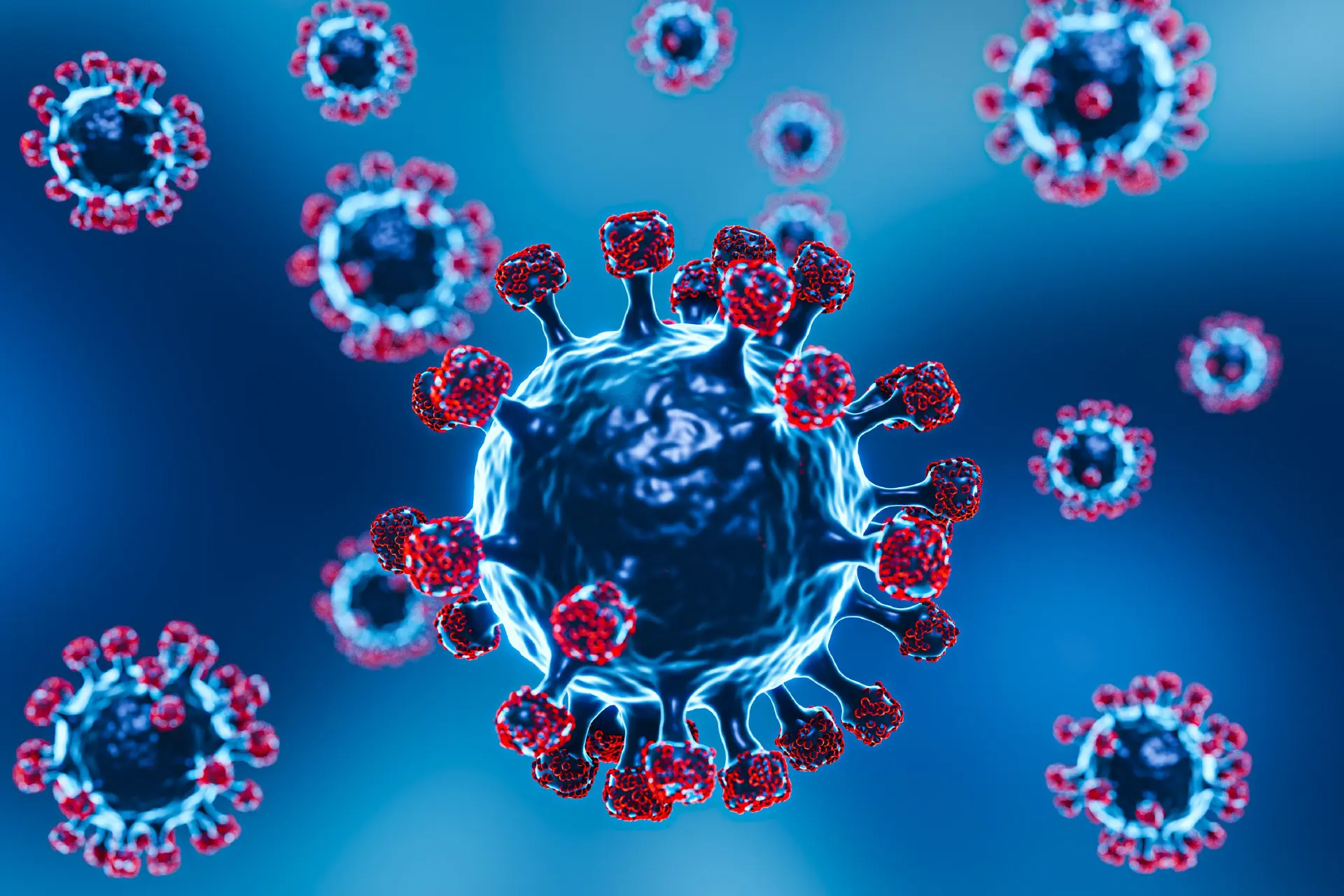Internal Medicine | 4 min read
Omicron Virus: All That You Need to Know About this New COVID-19 Variant
Medically reviewed by
Table of Content
Key Takeaways
- The new COVID-19 variant is designated as B.1.1.529 by WHO
- More than 230 omicron virus cases in India have been reported so far
- This COVID-19 variant has a higher transmissibility rate than delta
The emergence of the new COVID-19 variant has created a wave of unrest among people. The rapid mutations undergone by the virus have developed virulent strains of original SARS-CoV-2. Each mutation of the virus is becoming a deadlier version of the previous one. So far, the omicron virus has undergone more than 30 mutations in its spike protein, and thus WHO declared it as a Variant of Concern on November 26, 2021 [1]. The previous delta variant was considered to be the most dangerous one which caused the deadly second wave of pandemic.
Research reveals that the omicron virus is six times more infectious than the previous delta variant. The transmission rate is also higher than other variants. To know more about this new COVID-19 variant and omicron virus symptoms, read on.
Additional Read: COVID-19 Facts: 8 Myths and Facts About COVID-19 You Should KnowIs the Omicron Virus a Cause of Concern?
This strain, known as B.1.1.529, originated in South Africa before it spread to other parts of the world. Though it is too early to predict its behavior, early studies reveal that you have a higher chance of getting infected if you have been previously infected with coronavirus. There seems to be an increased risk of reinfection with omicron variant in comparison to previous versions.
The increased transmission rate was discovered when more than 90% of positive samples found in South Africa confirmed the presence of omicron virus. There were mixed findings about the severity of illness caused by this variant. While one study confirmed that omicron caused mild symptoms, another report hinted how this new strain could severely affect your lungs. Due to having more than 30 mutations in its spike protein, the variant has developed an immune-escape mechanism. This is a phenomenon where the pathogen invades your body by escaping your immune defense. Due to the presence of spike protein, the virus can enter your cells and cause infection. If any virus undergoes mutations in its spike protein, detecting the pathogen and eliminating it becomes more difficult.

Are There Any Differences Between Delta and Omicron Variants?
Omicron virus symptoms resemble most of the usual COVID-19 symptoms. However, research is going on to identify the unique features of this new variant. The common symptoms of contracting delta or omicron variants are
- Body aches
- Headache
- Fatigue
- Sore throat
- Eye irritation
- Discoloration on toes and fingers
- Diarrhea
Until now, severe symptoms have not been reported in case of the omicron virus.
Will Vaccines Be Effective Against This New Variant?
Multiple mutations pose an alarming concern about the omicron virus not just because of transmissibility but also in terms of vaccine effectiveness. Vaccines are developed on the basis of spike proteins present in a virus. After entering human body, COVID vaccines detect these proteins and neutralize them.
However, when a virus undergoes several mutations, it becomes difficult for existing vaccines to understand these modifications. As a result, vaccines may become ineffective to the virus. Current vaccines have been developed after studying the delta variants, but facts about COVID-19 keep changing as the virus is undergoing multiple mutations.
If the virus can evade vaccine-induced immunity, the only solution is to tweak the current vaccines to make them more effective against the new variant. While Covishield uses vector to generate an immune response, Covaxin utilizes inactivated virus to mount a defensive reaction. At present, it is difficult to tell how this new variant will affect vaccine efficacy.

How Many Omicron Cases Have Been Reported in India So Far?
Reports predict that January and February could see a surge in omicron virus cases in India. The first two cases were reported in Karnataka on 2 December, 2021. As of 23 December, 2021, India has recorded 236 cases of omicron contraction.
What Are the Precautionary Measures You Need to Take Against the Omicron Virus?
Follow these precautionary measures to safeguard yourself against omicron virus [2]:
- Maintain social distancing
- Clean your hands properly and often
- Avoid visiting crowded places
- Use a mask to cover your mouth and nose
Though omicron is a rising cause of concern, following proper protocol can protect you against this variant. Wearing masks and sanitizing your hands remain as the common precautionary measures. However, if you face even the slightest discomfort, do contact top specialists on Bajaj Finserv Health. Book an appointment online and address your symptoms at the earliest. This way you can prevent the spread of infection and be safe.
References
- https://www.who.int/news/item/28-11-2021-update-on-omicron
- https://www.unicef.org/coronavirus/what-we-know-about-omicron-variant
Disclaimer
Please note that this article is solely meant for informational purposes and Bajaj Finserv Health Limited (“BFHL”) does not shoulder any responsibility of the views/advice/information expressed/given by the writer/reviewer/originator. This article should not be considered as a substitute for any medical advice, diagnosis or treatment. Always consult with your trusted physician/qualified healthcare professional to evaluate your medical condition. The above article has been reviewed by a qualified doctor and BFHL is not responsible for any damages for any information or services provided by any third party.







